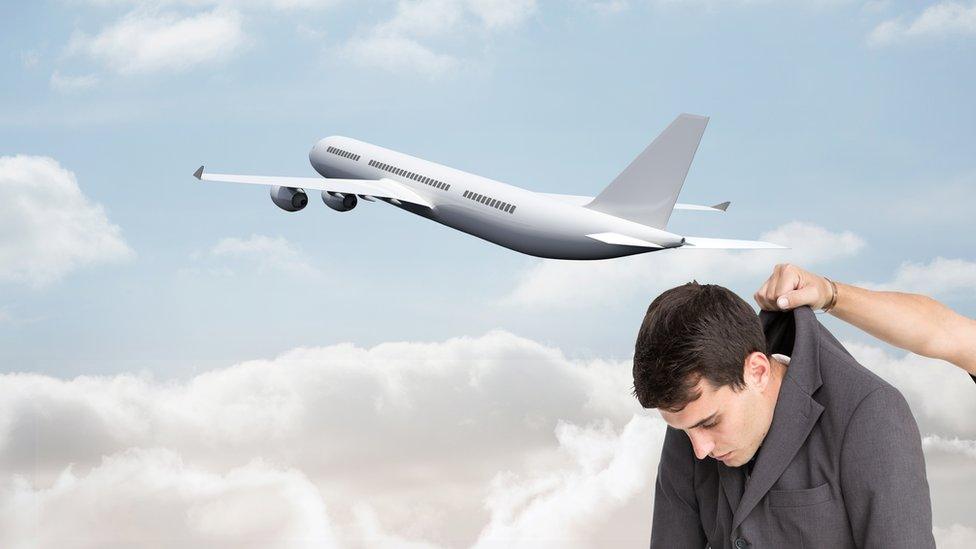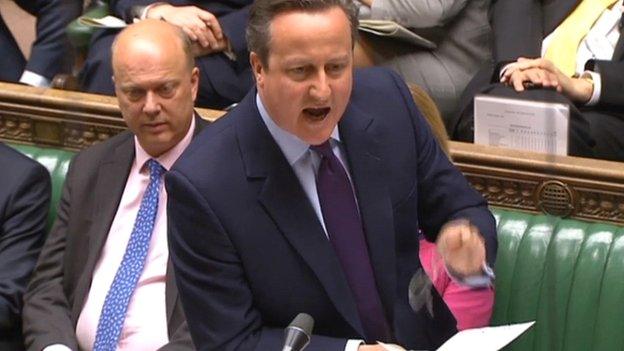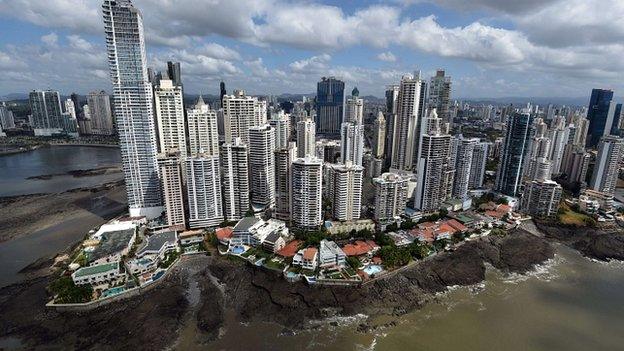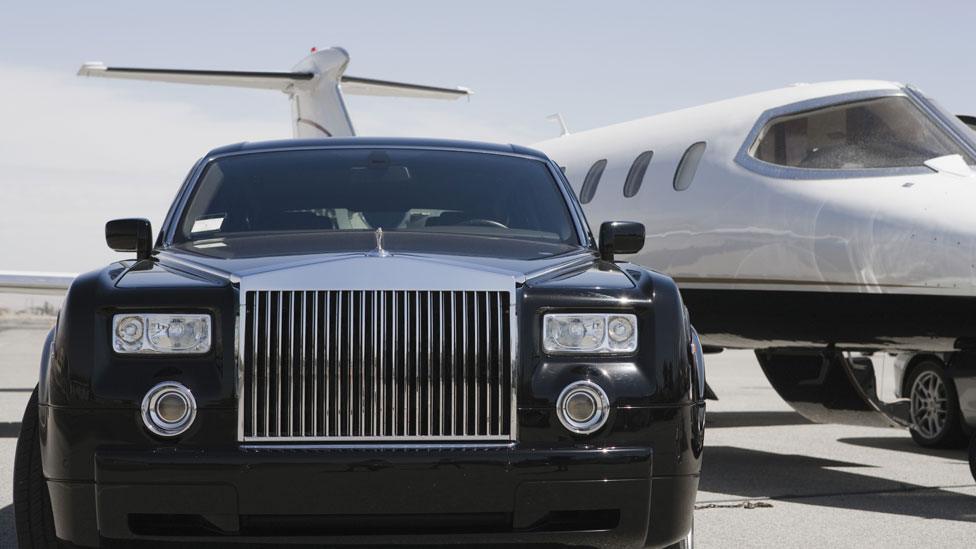Should the corrupt be banned from first class travel?
- Published

Hitting them where it hurts? Would a first class flight ban be a deterrent for corruption?
An international anti-corruption conference is being held next week in London, hosted by the Prime Minister David Cameron.
It's a toxic problem, corroding trust in everything from politics to sport to international aid.
But what can be done to stop it? How about a more creative approach to deterrence?
The development charity, One, external, which has warned of corruption as a "trillion dollar scandal", has come up with ideas for hitting the corrupt oligarchs where it hurts.
In their first class travel.
The charity is suggesting an airline ban for first class travel for those guilty of corruption. Airlines can have restrictions on passengers who have behaved badly on board - so why not have a corruption blacklist?

David Cameron is hosting an anti-corruption conference next week
They might be indifferent to public opinion and can buy enough PR covering fire, but do they really want to be jockeying for position in economy?
The anti-poverty campaigners say the idea would be to "make it more difficult and less enjoyable for the corrupt to spend their ill-gotten gains".
The ultra-rich might appear to inhabit a parallel world, but they might not look quite so smug going through the in-flight options on Ryanair.
The third world development campaigners say they want to start a conversation about smarter ways to tackle corruption.
The concept is to challenge the luxury lifestyles as well as to tighten the legal loopholes.

The Panama Papers revealed the extent of the concealed wealth
Another idea put forward is to encourage banks to put an international block on credit cards of those guilty of corruption.
There are also ideas borrowed from the ethical consumerism that pushed free-range eggs or fairtrade goods on to supermarket shelves.
There could be a "corruption free" kitemark for luxury goods, with the idea of accrediting firms to show there is no corruption in their supply chain.
They also suggest less secrecy about the buying, selling and true ownership of high-value objects and transactions.
Because if you know who seems to have an endless stream of money for buying paintings, jewels, high-end cars or property, it raises the question about where they are getting their cash.
These are ideas to be floated, rather than fully-formed policies. But the aim is to make corruption and money laundering a cultural target.

Should there be a clearer account of the true ownership of high-value purchases?
And it reflects the frustration that even when corruption is evident, the beneficiaries, whether individuals or corporations, seem to be able to step around any restrictions.
Mr Cameron is reported to be considering an international agency to tackle money laundering and high-level tax evasion.
But the scale of the challenge has been laid bare by the Panama Papers, shining a light on a globalised world of power, politics, anonymous assets and immense wealth.
The prime minister has to show that the democrats can keep up with kleptocrats.
Before a previous G20 summit, the One campaigners estimated that corrupt activities were siphoning away a trillion dollars a year from the world's poorest countries.
It claimed that this really was a matter of life and death as money that should have been spent in developing countries on health and nutrition was disappearing into the bank accounts of the corrupt.
"Corruption hits the poorest hardest," says David McNair, One's director of transparency.
He says it's wrong to think of corruption as something that happens "out there" and far away. It's a question for regulating financial networks in London and New York.
The One campaigners want Mr Cameron to commit the UK to do more to challenge secrecy in the ownership and beneficiaries of companies and trusts.
It has set out a list of formal proposals, aimed at clarifying corporate ownership, improving public disclosure and removing hiding places for corrupt assets.
"Corruption is a global problem - and it needs a global response."